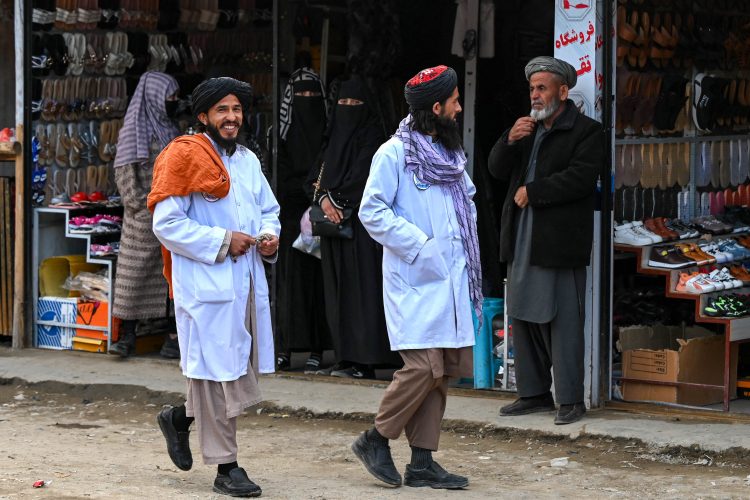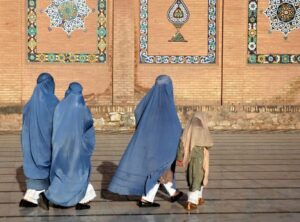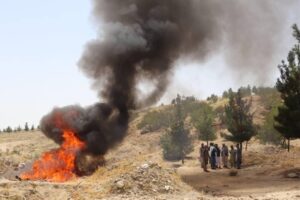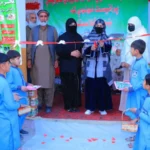The Ministry of Justice of the caretaker government of Afghanistan has announced that Mullah Haibatullah Akhundzada, the leader of this government, has ratified the “Law on Promotion of Virtue and Prevention of Vice,” which is now in effect in the country.
In a statement, the ministry said that this law consists of a preamble, four chapters, and 35 articles, and has been published in the official gazette. According to this law, covering the entire body of women is mandatory, covering the face due to fear of temptation is necessary, and women’s voices are considered part of “awrah” (that which must be concealed).
The statement mentions that the Ministry of Promotion of Virtue and Prevention of Vice and its officials are responsible for implementing this law in accordance with Sharia and Hanafi jurisprudence.
It should be noted that Article 13 of this law, which contains eight clauses, is dedicated to “Rules Regarding Women’s Hijab.”
According to the announced law, the first clause states that “covering the entire body of a woman is mandatory,” while the second clause mentions that “covering a woman’s face due to fear of temptation is necessary.” The third clause emphasizes that “the voice of women (singing songs, reciting poetry, and reading in gatherings) is considered awrah.”
Additionally, the fourth clause states that “women’s clothing should not be thin, short, or tight.” The fifth clause mandates that “Muslim women are obliged to conceal their bodies and faces from non-mahram men.” The sixth clause also states that “the covering of Muslim women and righteous women from non-believing and immoral women due to fear of temptation is obligatory.”
In the seventh clause of Article 13, it is stated that “the gaze of adult non-mahram men at women’s bodies and faces and the gaze of adult women at non-mahram men is forbidden.” The eighth clause stipulates that “if an adult woman leaves her house for a necessary need, she is obliged to cover her voice, face, and body.”
Furthermore, another section of this law explains the responsibilities of the officials in the Ministry of Promotion of Virtue and Prevention of Vice regarding media and press.
It should be noted that Article 17 of this law states that an official must ensure that media representatives do not publish content that contradicts religion and Sharia, does not insult or demean Muslims, and does not contain images of living beings.

Women Without Mahram and Transportation
This law prohibits playing music in vehicles, transporting uncovered women, and transporting women who do not have a legally recognized adult male guardian (mahram).
According to this law, celebrations such as Nowruz (Persian New Year), Yalda Night, fireworks, trimming or shaving beards, wearing ties, and grooming hair are deemed contrary to Islamic Sharia; allowing women’s voices to be heard outside the home and viewing images and videos of living beings on computers and mobile phones are categorized as specific “vices,” and it is stated that officials are responsible for preventing them.
This law also outlines penalties for individuals who do not adhere to the principles of promotion of virtue and prevention of vice as per this law.
According to this law, offenders will first receive a warning, followed by a reminder of divine punishment. Subsequently, they may face verbal reprimands, fines, detention from one to 24 hours or from one day to three days in public jails, and finally penalties deemed necessary by the official that do not require judicial proceedings.
It should be noted that over the past three years, the Ministry of Promotion of Virtue and Prevention of Vice has imposed extensive restrictions on fundamental freedoms for citizens, especially women, repeatedly detaining women and young girls from streets on charges of “improper hijab.”













